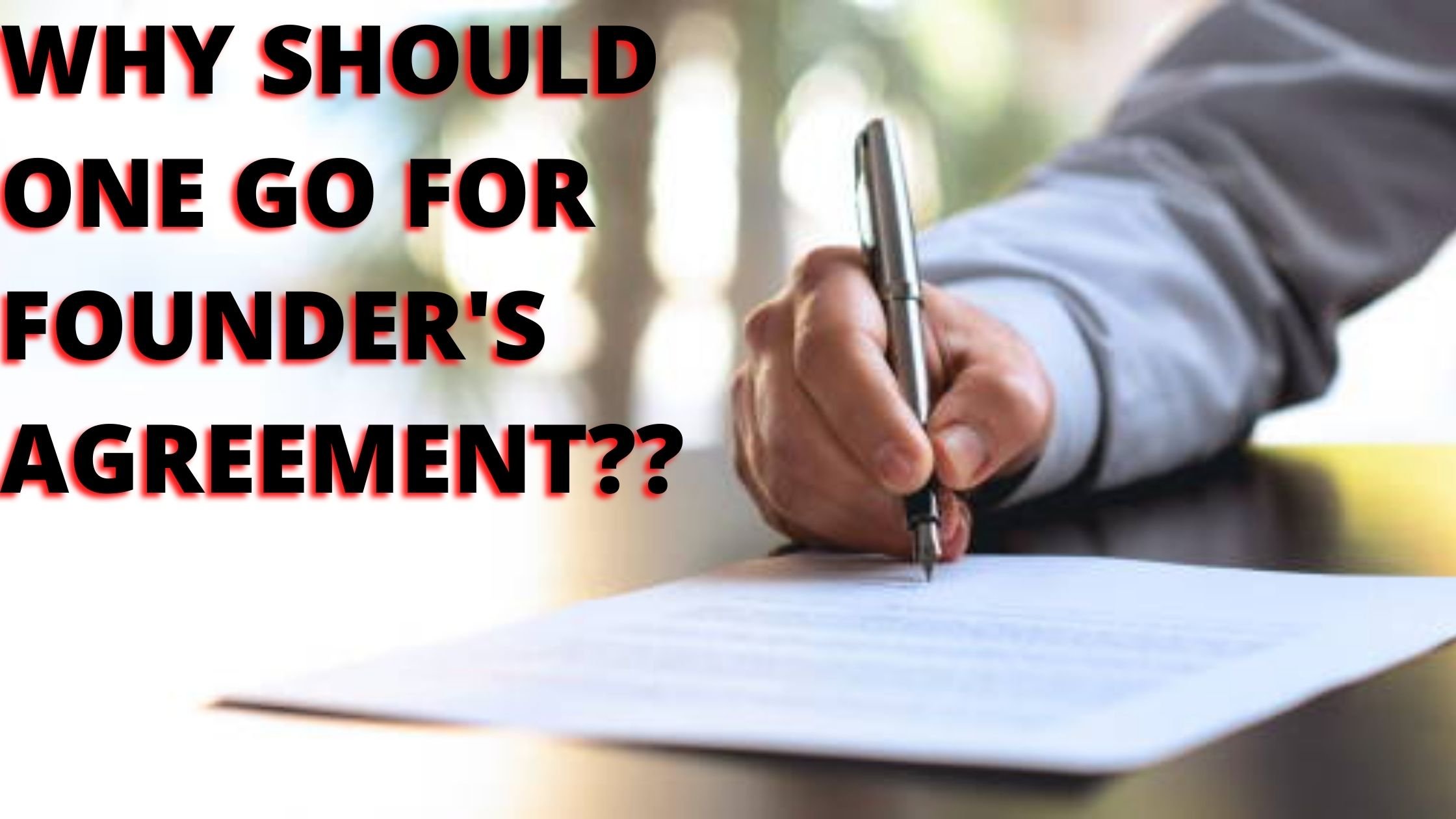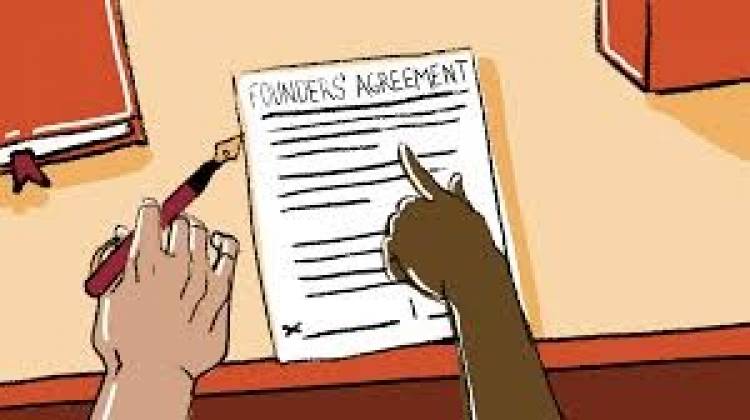Why should one go for Founder’s Agreement?
Founders Agreement, though not compulsory is an essential element for every startup. It is a document made between two or more persons who want to set up a business. Every startup is planned only when a number of people come together who have certain skill sets, networks, or qualities that combine to form a common vision of the startup. These people are the co-founders of the startup and to maintain the common vision, they need to be in the harmony.

Why should one go for Founder’s Agreement? 
Looking at the scenario of the COVID era, the mantra of ‘Vocal for Local’ is being preached by the Prime Minister of India, Narendra Modi. With the vision of becoming ‘Aatmanirbhar’, acquiring the self-reliant position needs opening up a startup/business. If you are planning to open a business and accept the entrepreneurial role with your friends/family as your partners in the startup, it is important to have a founder’s agreement.
Founders Agreement, though not compulsory is an essential element for every startup. It is a document made between two or more persons who want to set up a business. Every startup is planned only when a number of people come together who have certain skill sets, networks, or qualities that combine to form a common vision of the startup. These people are the co-founders of the startup and to maintain the common vision, they need to be in the harmony.
Because as much as you trust each other in every role and responsibility you accept, it is equally possible that there could be confusion which could lead to miscommunication and mistrust affecting both the personal as well as professional relations.

So,
What is the Founder's Agreement?
A founders' agreement is defined as a contract between the members of the startup. The Agreement sets forth the roles and responsibilities, dispute resolution mechanism and other terms to be executed between the founders and the company which can help in navigating their paths in a defined manner.
To know more about, co-founder's agreement, see the video below -
Elements required for the founder's agreement are-
1. Allocating duties and decision-making process:
Nobody is guaranteed about what will befall the business later on. It is critical to assign the obligations of every one of the founders so the business can be run proficiently consistently. The founder’s agreement should express the function of every single member. For instance, it can state one founder to be in charge of the tasks while the other one in charge of the significant dynamic change. There are circumstances where both the founders will differ with one another assessments in the dynamic cycle, in such case, the founder’s agreement should direct to the founder who will have the final call. To avoid such conflicts founder’s meetings should be scheduled every 1 month. It is significant for the founders to dodge the heightening of conflicts in the business which can arrive at levels where the startup will chance disintegration.
2. Allocating ownership equally and vesting powers:
The founders of the startup will direct modified measures of cash and time in the business. The founder’s agreement ought to obviously express the ownership procedure of the business and how it can progress in the long run. The best arrangement ought to align the business accomplishment with the money related achievement of the association. It is significant for the founders to stay away from cases where the business will be fruitful, and founders will wind up in clashes on how much will every last one of them get. The best arrangement should share the benefits from the business startup with respect to the measures of capitals every member has contributed towards the startup.
And keep in mind that considering the value split between founders, what if any of the co-founders wishes to leave?
You ought to consider the dynamic value split and vesting period. Utilizing a dynamic-split model, business visionaries can decide precisely how much value every individual in the startup deserves, which is not possible in a fixed-split model. In a fixed-split model, the founders choose ahead of time what the founders are worth dependent on the future commitments they'll make yet in a dynamic-split model, value choices depend on what founders' present commitments which is more effective and realistic.
Also, be smart and have a far-sighted vision that there could be a possibility of split, thereby thinking before vesting powers to each member of the startup. The powers should be vested depending on the roles and the value they bring to the company.
3. Intellectual Property Rights ownership:
Like every property of yours which is protected, the intellectual property also needs to be protected. APPLE which was founded in 1976 has seen multiple CEOs, then also it stands strong today in 2020 because it protects its brand name, logo and now it also protects its retail store design to avoid anyone from copying or using the years of hard work that has gone in making the brand value. So, the brand value remains if the IPR is owned by the company and not by an individual.
On the off chance that you are working in a cutting edge area, it's conceivable that one of the founders had a significant part in building up that item. He/she has all the right to be attached to their innovation, yet any IPR ought to be possessed by the organization and not by a person. The innovator can be compensated with a higher value of equity and more vested powers whenever required yet once you structure a startup, everything is possessed by the organization and not by a person. This encourages you to ensure the association when an individual chooses to split away. He/she becomes free of the burden of not having the option of leaving and also after leaving cannot claim the right over the product.
To know more about, the benefits of having a co-founder in business, see the video below -
Conclusion
Having a founder’s agreement provides written rules and regulations which help in avoiding conflicts and promises the startup a long-term life. According to the facts and figures, only 1 out of 100 new startups survive in the initial years of 3 years and the major reason behind it is poor planning, as progress requires ‘Prior Proper Planning’.
Since, startups run on risks, through the founder’s agreement dissolution and termination of a startup could be planned also the exit strategy of the members of the startup could be devised in the very beginning. And, once the agreement is finalized, each founding member should sign it and keep a copy of it with themselves for future reference.
BY -
ASHMITA AGRAHARI












